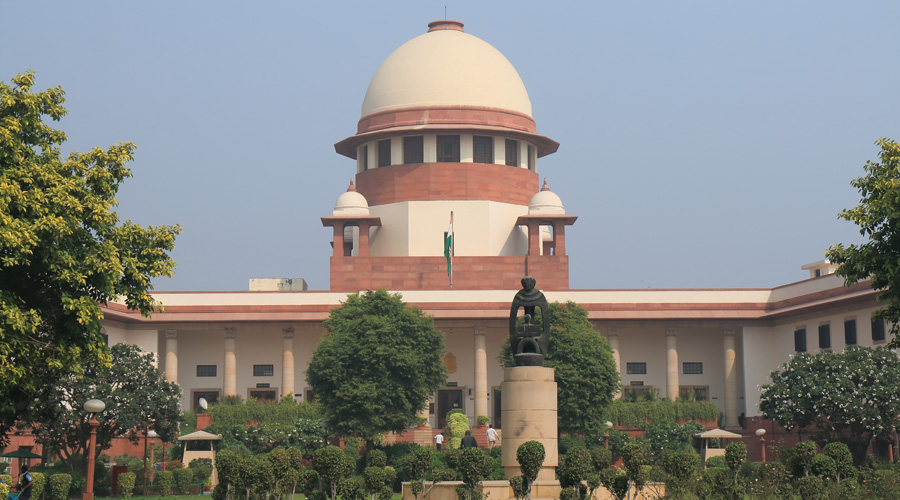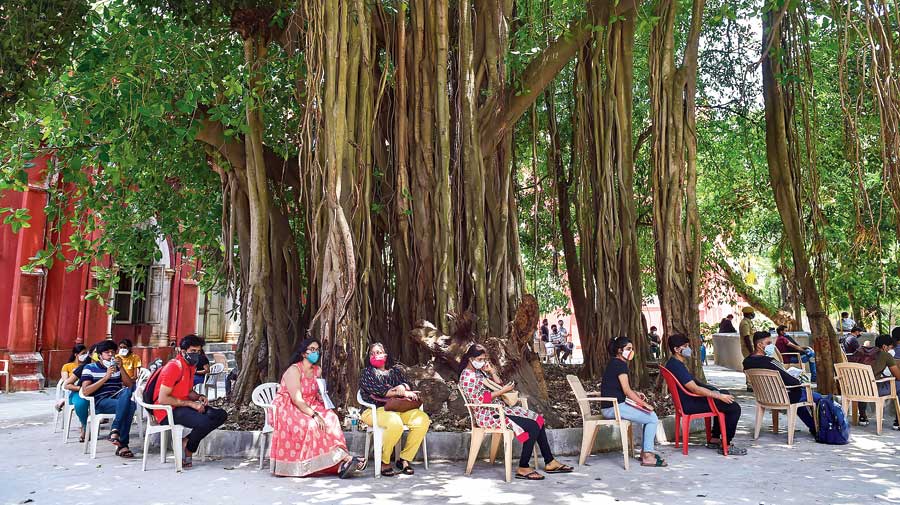The Supreme Court on Wednesday described as “prima facie arbitrary and irrational” the Centre’s policy of leaving adults aged below 45 to pay for their Covid-19 jabs while providing for free vaccination of those aged 45 or above.
While the Centre is not bearing the cost of the jabs for those aged between 18 and 45, some state governments are offering them free vaccination at their own expense.
The apex court also asked the Centre to explain its preparedness to meet children’s possible needs if there’s a third wave that affects them.
It agreed with its amici (friends) — senior advocates Jaideep Gupta and Meenakshi Arora — that the central government’s current vaccination policy was flawed.
It highlighted that during the second wave of the pandemic, many people aged between 18 and 45 had not just been infected but suffered severe illness, sometimes leading to death.
“Due to the changing nature of the pandemic, we are now faced with a situation where the 18-44 age group also needs to be vaccinated, although priority may be retained between different age groups on a scientific basis,” the bench of Justices D.Y. Chandrachud, L. Nageswara Rao and S. Ravindra Bhat said.
“Hence, due to the importance of vaccinating individuals in the 18-44 age group, the policy of the central government for conducting free vaccination themselves for groups under the first 2 phases, and replacing it with paid vaccination by the State/UT (Union Territory) governments and private hospitals for the persons between 18-44 years is, prima facie, arbitrary and irrational.”
The court agreed with the amici that the states had been left in the lurch because of the Centre’s refusal to procure for them their entire vaccine requirement.
It noted that many states and municipal bodies had floated tenders and tried to negotiate with foreign vaccine manufacturers, but largely without success as overseas companies prefer negotiating with Union governments.
The bench asked the Centre to provide clarifications on several issues, such as:
⚫ The Centre must place on record a projection of vaccine availability till December 31, and give details of vaccination trials and regulatory approvals.
⚫ The Centre should clarify whether its policy allows the states or local bodies to import vaccines.
⚫ The Centre should provide the number of crematorium workers vaccinated in Phase 1. A targeted drive can be conducted to vaccinate the remaining crematorium workers.
⚫ Reports say some states are vaccinating over-45s with doses they have bought from manufacturers for younger adults, all because of a shortage of supply from the Centre. How will the Centre factor this in while deciding subsequent allocations to the states?
⚫ The Centre must disclose the nature of its intervention with respect to the final, end-user price that is being charged by private hospitals.
⚫ How will the Centre monitor the disbursal of vaccines by private hospitals, specifically those that have pan-India hospital chains?
⚫ Are private hospitals (that are part of interstate chains) bound to administer a quantity of vaccines in a state in proportion to its population? What is the mechanism to ascertain whether private players are indeed administering a state’s quota of vaccines solely to its residents?
⚫ The Centre must place on record any written policy in relation to this: whether it conducted a “means-test” of the demographic of a state or Union Territory to assert that half the population aged between 18 and 45 would be able to afford the vaccine. If not, what is the rationale for private hospitals being provided an equal quota for procurement as the states?
⚫ The Centre must explain the manner in which it and the states will ensure an equitable distribution of vaccines across sections of society.












